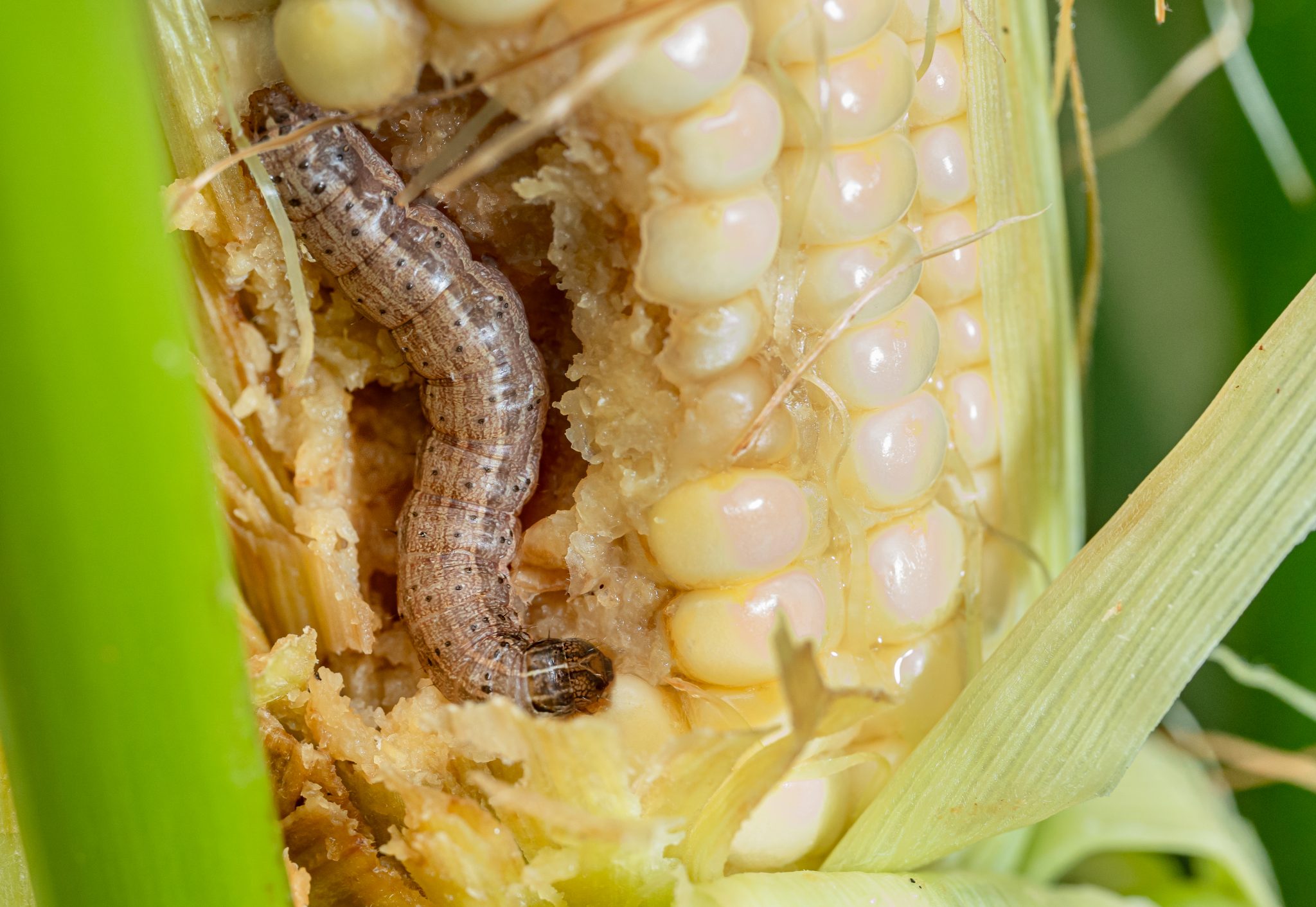Although native to the Americas, fall armyworm, Spodoptera frugiperda, is a highly invasive pest that can cause significant damage to crops worldwide.
First reported in the cornfields of sub-Saharan Africa in 2016, it spread to Karnataka, in southern India 2018 and has now been identified across 20 Indian states. In addition to maize, fall armyworm attacks other important crops such as rice, sugarcane, beet, potato, cotton, and grassland.
The CHAP-led project – funded by the UK Government through the Foreign, Commonwealth & Development Office (FCDO)’s, Science and Innovation Network in India – will bring together UK and Indian expertise across a range of areas to deliver an affordable network-based monitoring solution.
Consortium partners include CABI, food chain data specialists Knowmatics, and sensor experts Ystumtec.
Dr Jenna Ross, CHAP International Business Development Manager, said: “We’re delighted to be part of this multidisciplinary consortium, to develop an affordable, inclusive and scalable technology for the monitoring of fall armyworm.
“To date, there has been no co-ordinated sentinel network or strategy for monitoring current and future invasive alien species (IAS) in India, due to the lack of reliable and consistent tools, and capacity to establish such a network.
“By creating a sentinel network that alerts smallholders, this could bring significant economic benefits to the region through reduced crop damage.”
Farming practices such as crop monoculture and overuse of pesticides mean that fall armyworm is an increasingly destructive pest. In sub-Saharan Africa, damage to the continent’s main crop, maize, is estimated at US$2 billion (£1.47bn) per year.
It is the larval stage of the insect that causes the damage, feeding in large numbers on the leaves and stems of more than 350 plant species.
The consortium hopes to reduce this damage. Work will include stakeholder and human-centric research studies to ensure an appropriate route to market. A messaging method will also be developed, to overcome barriers such as cultural, behavioural, language and gender obstacles.
CEO and founder of CHAP member Knowmatics, Derek Scuffell, said: “We’re excited to take on this challenge through the innovative application of digital and network technologies. By leveraging the power of affordable networked sentinels, farmers will have access to pest risk intelligence over a large area around their farm.
“This prototype project will provide the background data needed to establish affordable pest risk and surveillance services that can be used by farmers, distributors, and agribusinesses to implement appropriate pest control that supports more sustainable farming, reduces costs on the farm, and lifts socio-economic outcomes.”
Ystumtec designs and builds electronic and electro-mechanical devices. CEO Mark Neal, said: “We view this project as a flagship endeavour that can demonstrate the value of our IoT and sensor technologies and the data that they provide.
“We’re excited about the potential impact of our technology on the environment, livelihoods of farmers and economics of farming at a larger scale in India and further afield.
“In our experience, engagement with farmers and end-users is vital to successful deployment and uptake of this kind of technology and this project has all the key ingredients for success.”
The project also aims to deliver additional benefits beyond its core objectives, including increased knowledge transfer between UK-India partners, and expansion of the system to combat a wide range of IAS in the future.
CHAP partner CABI has been at the centre of tackling fall armyworm in Africa and Asia, and is one of the contributors to Fall armyworm in Asia: A Guide for Integrated Pest Management, published by the International Maize and Wheat Improvement Center.
Dr Vinod Pandit, Programme Leader at CABI, said: “Fall armyworm has been spreading fast inter- and intra-countries, as was predicted by experts when it first landed in Africa. So, it is now high time that evidence-based sustainable approaches for monitoring and management of the pest are created, that are adaptable to suit regional context.”
For more information about the pest, visit the fall armyworm research collaboration portal.
If you have any questions about CHAP’s work in plant protection or would like to discuss a potential project, please send us an email using the enquiries form at the bottom of our homepage.












